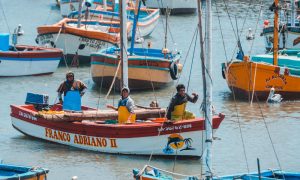
In order to ensure that we are all able to enjoy these resources long into the future, fishers must adopt more sustainable fishing practices. WWF has been leading projects to improve fisheries’ long-term sustainability since 2010 and has successfully introduced training workshops in the last five years. The trainings teach local stakeholders how to develop, implement, and monitor the progress of FIPs; communicate with and engage key partners; and develop funding strategies to support the financial needs of their projects. Participants also conduct exercises, using regional case studies as models, to test the skills they’ve learned and apply best practices for implementing FIPs in their local communities. Since 2015, workshops held in Indonesia, Vietnam, Chile, Peru, Mexico, India, and the US have drawn over 300 participants from across Asia-Pacific, Latin America, and the Caribbean. Alongside fishers, these trainings are open to government policy-makers, NGOs, seafood companies, and fisheries experts.
One goal of these workshops is to build local knowledge to manage fisheries more sustainably so that those involved can teach their own communities and no longer expend resources on bringing in outside experts. This was achieved in Kerala, India in 2018 after WWF partnered with the MSC and the Central Marine Fisheries Research Institute to deliver and implement FIP trainings. Through a combination of face-to-face training, visits to local fisheries, and remote mentoring, three local trainees completed an MSC pre-assessment course. Their newfound knowledge from these trainings enabled them to identify the environmental challenges in the Karrakadi shrimp, Poovalan shrimp, octopus, squid, and cuttlefish fisheries that comprise the market in the state of Kerala.